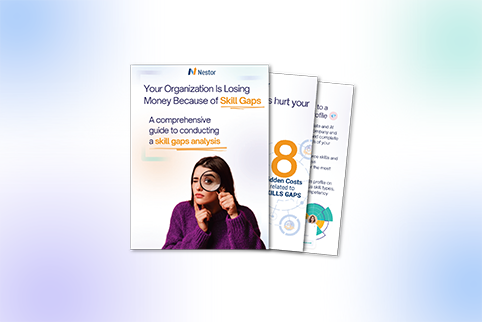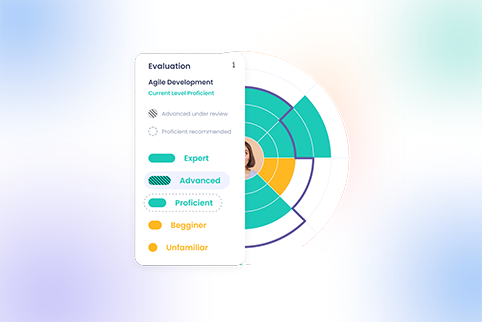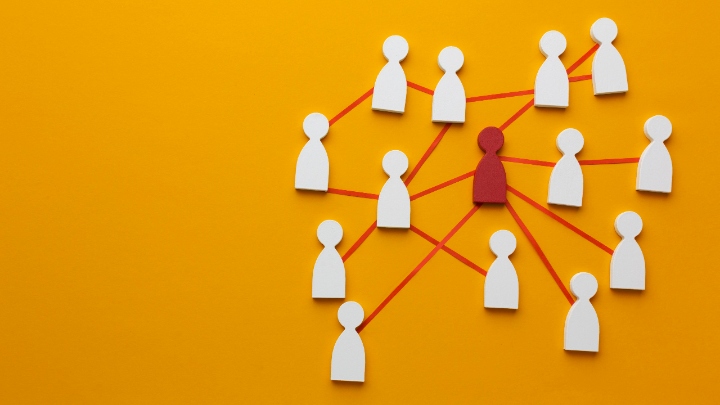
The modern workplace is not defined by some physical boundaries anymore nor by a fixed workforce. As a consequence, the type of skills needed for this modern workplace has evolved also. As Gartner’s research shows, through 2023, 40% of organizations will blend virtual and physical experiences enabling a new business model. This new business model called — “anywhere operations” — empowers organizations to reach customers, support employees, and deliver business services anywhere with the help of digital infrastructure.
The new hybrid work combined with the new business models and the accelerated adoption of new technologies such as RPA or hyper-automation is disrupting the markets and reshaping the nature of work. As a result, today’s workforce will need to learn new modern skills and continually adapt as new occupations emerge.
In a labor market that is more automated, dynamic, and unpredictable, according to McKinsey Global Institute, the set of foundational skills that can contribute to the outcomes below will become definitory no matter the industry or the job role. The three major areas the future workforce will have to focus on are:
- adding value beyond what can be done by automated systems and intelligent machines
- operating in a digital environment
- continually adapting to new ways of working and new occupations
We identified below a set of skills and attitudes we see as critical to succeed in the modern workplace:
Mental flexibility
The modern workplace is subject to constant change. In such environments, a flexible mindset helps you cope with the idea that change is something inevitable and you have to live with it. Once you accept this, it will be easier to adapt and manage stressful or unknown situations. A flexible mindset is often associated with growth.
This is particularly true because a flexible mind assumes we can all change in meaningful ways, develop new capabilities, improve our leadership styles, learn from mistakes, and are open to constructive suggestions and feedback. Mental flexibility is highly sought after by companies because the people who possess it will adjust more quickly, and will be more focused on finding ways to overcome obstacles.
Learning agility
Whether it’s about improving skills, figuring things out as you go, or trying to self-develop, the willingness and ability to continue learning throughout your career is more important than ever. Learning agility, sometimes described as “knowing what to do when you don’t know what to do” is not necessarily associated with formal education. It is more about being curious, passionate, intentional with what you do, and eager to take on new challenges.
These types of people, known as lifelong learners can learn from their experiences, personal or professional, and apply them according to each situation. They find real joy in learning because they want to understand the world around them. In fact, lifelong learners are interested not only in professional development but also in personal growth.
Communication
With the rise of post-pandemic hybrid workplaces, communication has become vital in smoothing team collaboration. The modern workplace where teams may work entirely remotely, from different cities, countries, or even time zones is dependent on open communication to exchange opinions or information, share knowledge, or contribute to common goals and projects.
Communication should not be one-way but rather encompass your employees’ expectations and development needs by collecting feedback regularly. It should also include active listening. Active listening involves paying close attention to your interlocutor, not rushing to interrupt him or reply but rather being present in the moment and truly interested in what one has to say.
Digital collaboration
Digital collaboration is the way people are working together using technology to facilitate information flows, file exchange, shared tasks and the list could go on. Modern workplaces that often include remote teams rely heavily on digital collaboration to get the job done. Even though collaborative tools are critical to the digital collaboration equation, people are the ones using them.
The more familiar people are with different tools and platforms, the more productive and efficient will be in performing their job. So being tech-savvy in today’s world is not a matter of choice anymore. Especially since Gen Zers who are projected to make up a total of 27% of the workforce by 2025 say technology would be a decisive factor in choosing a job.
Network leadership
Research by Global WebIndex shows that globally, 58.4% of the world’s population uses social media. The average daily usage is 2 hours and 27 minutes as of January 2022. With these numbers in mind, today’s leaders must be able to leverage the power of digital channels to spread influence, build brand awareness and gather others around common objectives.
Digital networks including social channels or communities provide powerful ways for self-expression, thought leadership, and network building. Leaders can express their views beyond the formal authority and can shape opinions or promote their own agenda. However, this requires a variety of tactics and capabilities that are not always easy to master. Persuasion, accountability, effective communication, presentation skills, and relationship-focused are among the most important ones.
Data literacy
Data interpretation is the foundation for faster decision-making in the modern workplace. With the right tools, you can collect and then harvest real-time analytics about your customers’ behaviors, your employees’ engagement, or your business performance and develop strategies accordingly.
But in order to do that, you need the right capabilities in your people. They must be comfortable with working with data, analyzing it, detecting patterns, spotting strengths and maybe weaknesses, adding context, and reporting in a comprehensive way the relevant findings.
Self-motivation
Most people might be motivated by external factors, yet, great leaders unleash the motivation found within. This practice allows them to move consistently toward their goals and to achieve beyond expectations. The good news is that self-motivation can be exercised. Some of the main ways to do this include:
- Set measurable goals
- Review and track your progress
- Enjoy success, even the smallest achievements
- Surround yourself with positive people
- Practice gratitude
- Seek for mentors
- Stay active
- Understand your emotions
- Mindset is the key
For better understanding, don’t forget to check our template for goal-setting!
Energy, passion, and optimism
No leader should undervalue these attitudes. They are the foundation of any healthy company culture and influence the overall morale. Believe it or not, people who are energetic and passionate about their work are more likely to be drivers of change and value-added. This is because they have a higher purpose, are relentless to find solutions beyond the obvious, and mostly, they enjoy the work itself.
Even more so, research conducted by The Limeade Institut concluded that 97% of people with a higher level of optimism were engaged at work, compared with a lower rate, of 55%, for people less optimistic.







